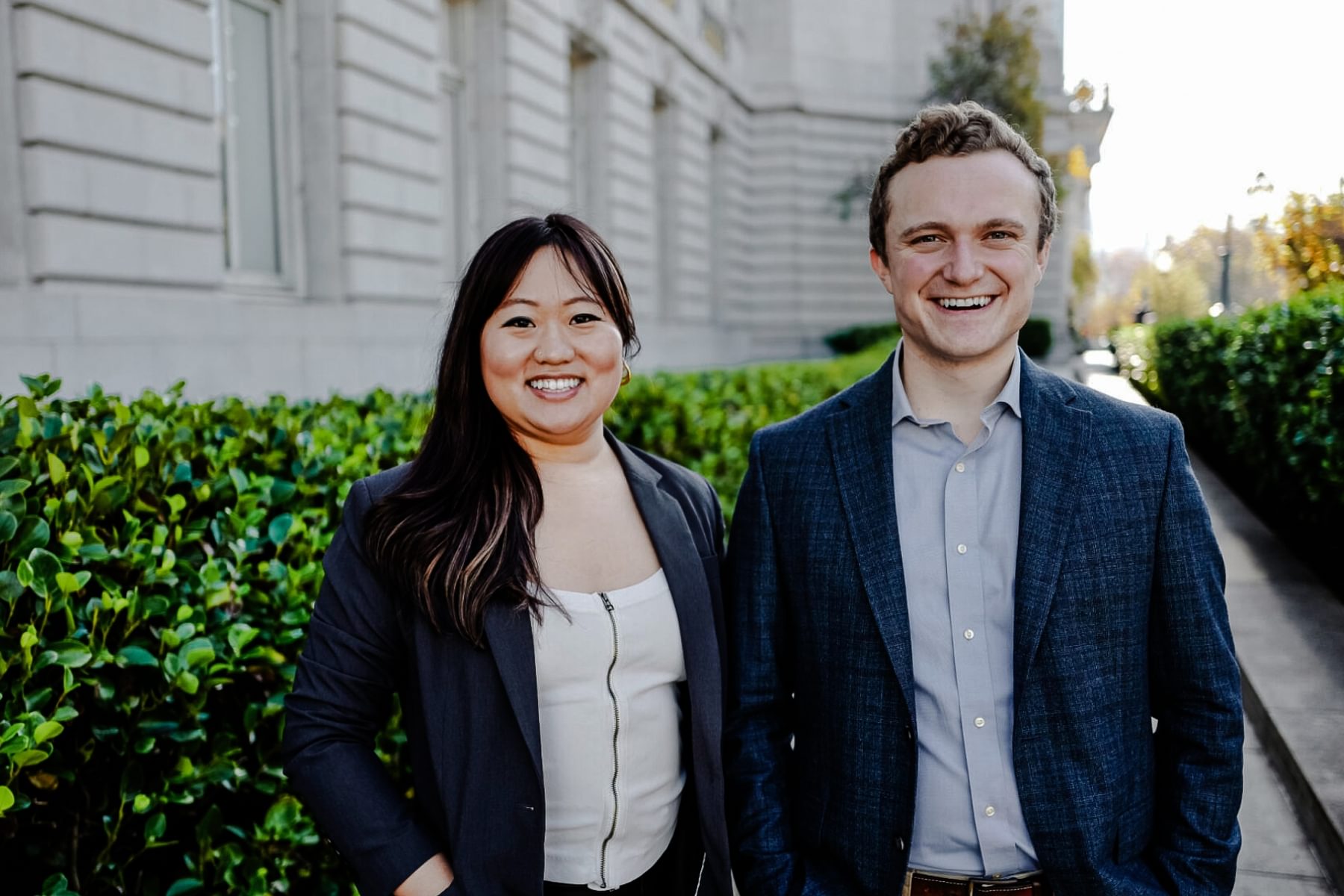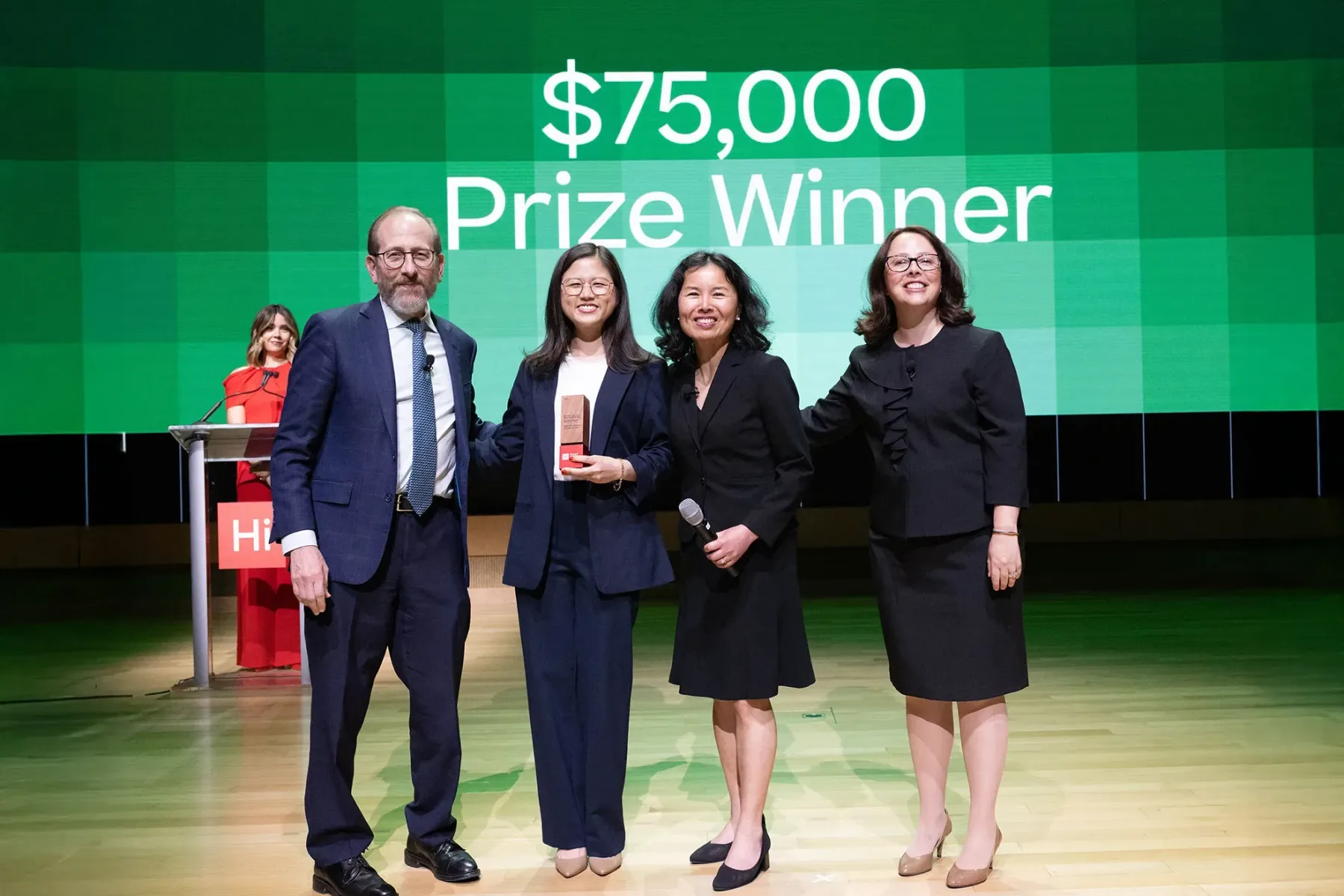This Asian American and Pacific Islander Heritage Month, we’re thrilled to celebrate the many AAPI founders in the Harvard Innovation Labs community!
To explore resources for and voices of the AAPI community at Harvard, this Harvard Business School MBA Voices blog post shares the stories of community members in the Asian Affinity Business Association. Alumni around the globe may wish to join HAAAA, the Harvard University Asian American Alumni Alliance, which “seeks to provide a forum for connection, community, learning, and support among Harvard University Asian American alumni globally, to foster engagement with Harvard and to represent our concerns at Harvard and in the community beyond.”
Candice Choi, MBA ’23, Founder, Geem
What is Geem?
Geem aims to introduce Western audiences to a secret: seaweed. Our seaweed snacks are held in centuries-long traditions of Korean recipes that utilize this under-appreciated superfood. Our snacks sit at the intersection of several exciting trends: the Korean pop culture wave, sustainability, clean ingredients, and a founder-driven brand story.
What inspired you to start your venture?
Seaweed has exploded in popularity over the last few years. Western media is just discovering this superfood, excited not only about its nutrition density but also its climate-saving properties. There are a few seaweed startups that are experimenting with new products, from seaweed smoothies to seaweed bacon.
Who better to lead this seaweed revolution better than a Korean? We’ve been eating seaweed for millennia, and the traditional nori sheets are a favorite. What I noticed is that the Western palate really loves a crunch – there’s something so satisfying about a good bite. Thus, Geem snacks were born!
What keeps you motivated as you pursue your venture?
I’ve been working in the consumer-packaged goods space for years, and that’s intentional. Nothing excites me more than seeing people open my bag and eat my snack for the first time. The shift from hesitation – “I’m not sure I’ll like it” – to surprise and delight – “Oh my God, this is really good!” – keeps me going. Seaweed skeptics may not like the traditional sheets, but they absolutely love the seasonings we add to Geem snacks. Some of the most surprising feedback has come from Asian Americans who’ve grown up with the traditional sheets; many of them love the new snackable format of Geem snacks.
How has the Harvard Innovation Labs helped you on your journey?
The mentors through Harvard and the i-lab are amazing. I’ve asked them for advice on everything – from how to create my own manufacturing line to how to design the best packaging. Getting access to a diversity of expert opinions is so important, because there is no textbook way to run a business. Shoutout to Lianna Capozzola and Dawn Dobras for being amazing mentors; they’ve seen me build from nothing.
What opportunities and/or challenges face AAPI entrepreneurs today?
I can’t speak for everyone, but I personally have struggled with being comfortable taking up space. For East Asians in particular, we’ve been taught to assimilate because that’s the only way families like mine, who left home and comfort with little grasp of English, knew how to survive. It wasn’t until very recently that I realized our stories are just as valid and that “staying quiet and working hard” only gets us so far.
In the food community, there are large challenges facing all people of color. Even though consumers desperately seek new flavors, the gatekeepers (e.g., retail buyers) tend to be “old guard.” It can be frustrating because food should be inherently democratic! But with great challenges come great opportunity – the POC food founder community is extremely supportive, and we tend to be the best champions of one another.
How can the entrepreneurial community better support, recognize, and make space for AAPI innovators?
Don’t be afraid to be an ally! I find that the best-intentioned people are nervous about being a “good” ally. Sometimes the best support is just word-of-mouth excitement – particularly if you’re part of a community that is new to AAPI innovation!

Amy Liang, MBA ’23, Co-founder and CEO, Dermocratize
What is Dermocratize?
70% of dry shampoos and 27% of sunscreens contain a carcinogen called benzene that’s not listed on the ingredients list. This is because the beauty industry is not well regulated, so brands are not obligated to test their products for contaminants. Therefore, even if you use clean products that are EWG certified or clean at Sephora, you could still be using products with harmful toxins. In this over 500 billion global beauty market, no one is doing widespread consumer driven carcinogen testing. Because of my frustration with this I created Dermocratize. The solution is an app that tells you how safe each product is using LOD verify test information. Dermocratize is a one stop shop for consumers to buy clean beauty that actually works for their particular skin type, using machine learning algorithms, dermatologist product screening, and carcinogen lab testing. It is an app that scans any product to show lab test results for carcinogens and toxins, predict unlisted harmful ingredients and suggests safer alternative products to purchase for consumers.
What keeps you motivated as you pursue your venture?
I am motivated by my passion for health and beauty and that one shouldn’t have to choose one or the other.
How has the Harvard Innovation Labs helped you on your journey?
Harvard Innovation Labs has been instrumental for getting advice from key experts in the beauty industry, including VCs and entrepreneurs. They also have a wonderful mentorship program that matched me with a highly relevant serial entrepreneur in the consumer app space. Additionally, the Harvard Innovation Labs has provided some funding and access to a community of peer entrepreneurs.
What opportunities and/or challenges face AAPI entrepreneurs today?
It is harder to raise money if you are seen as a quiet Asian girl because that is not the typical entrepreneur that VCs are used to seeing.
What can the entrepreneurial community learn from AAPI leaders?
Their resilience and determination to succeed despite any additional obstacles in their way.
How can the entrepreneurial community better support, recognize, and make space for AAPI innovators?
By supporting each other regardless of external appearances and not judging an idea based on whether the founder’s appearance is what they expect a founder to look like.





